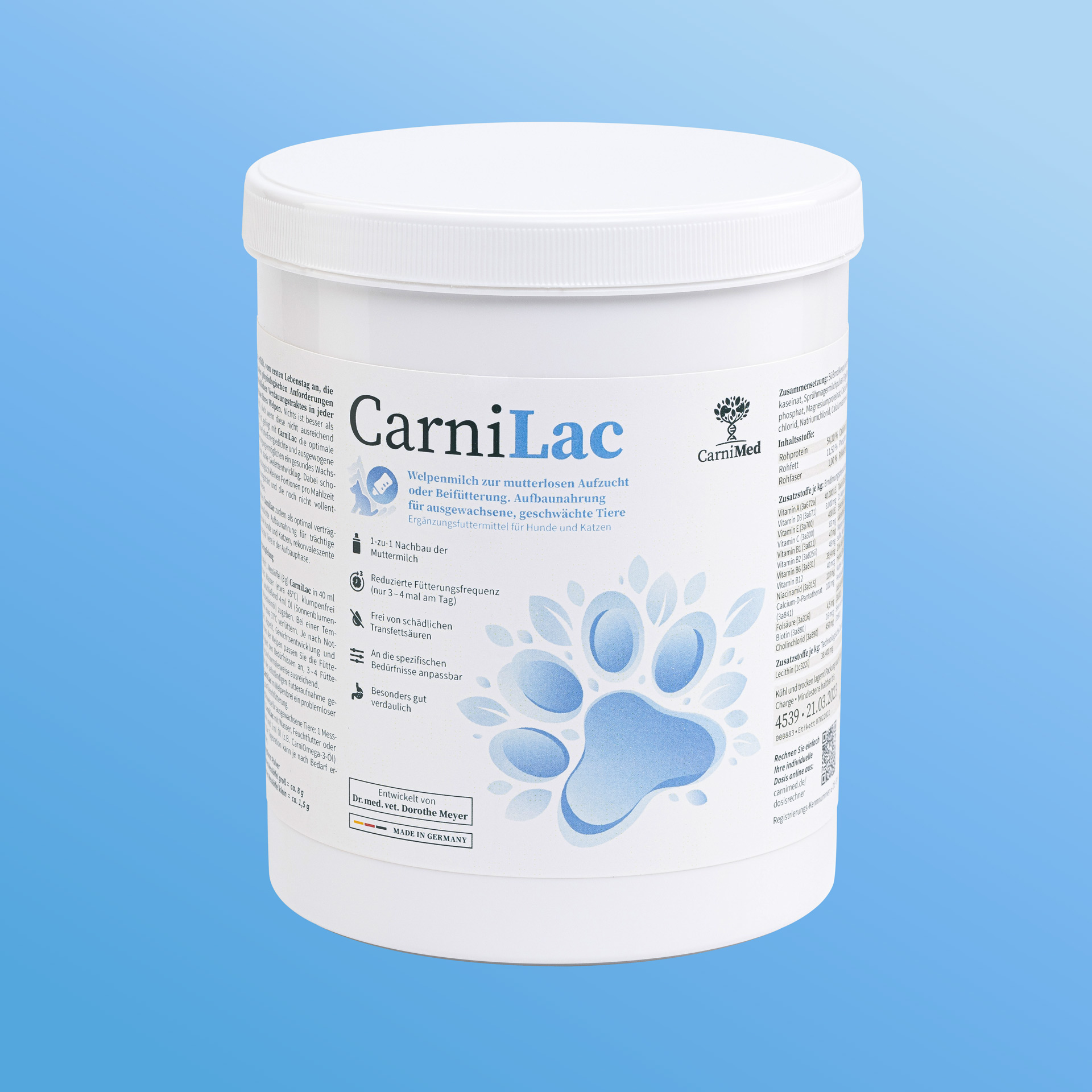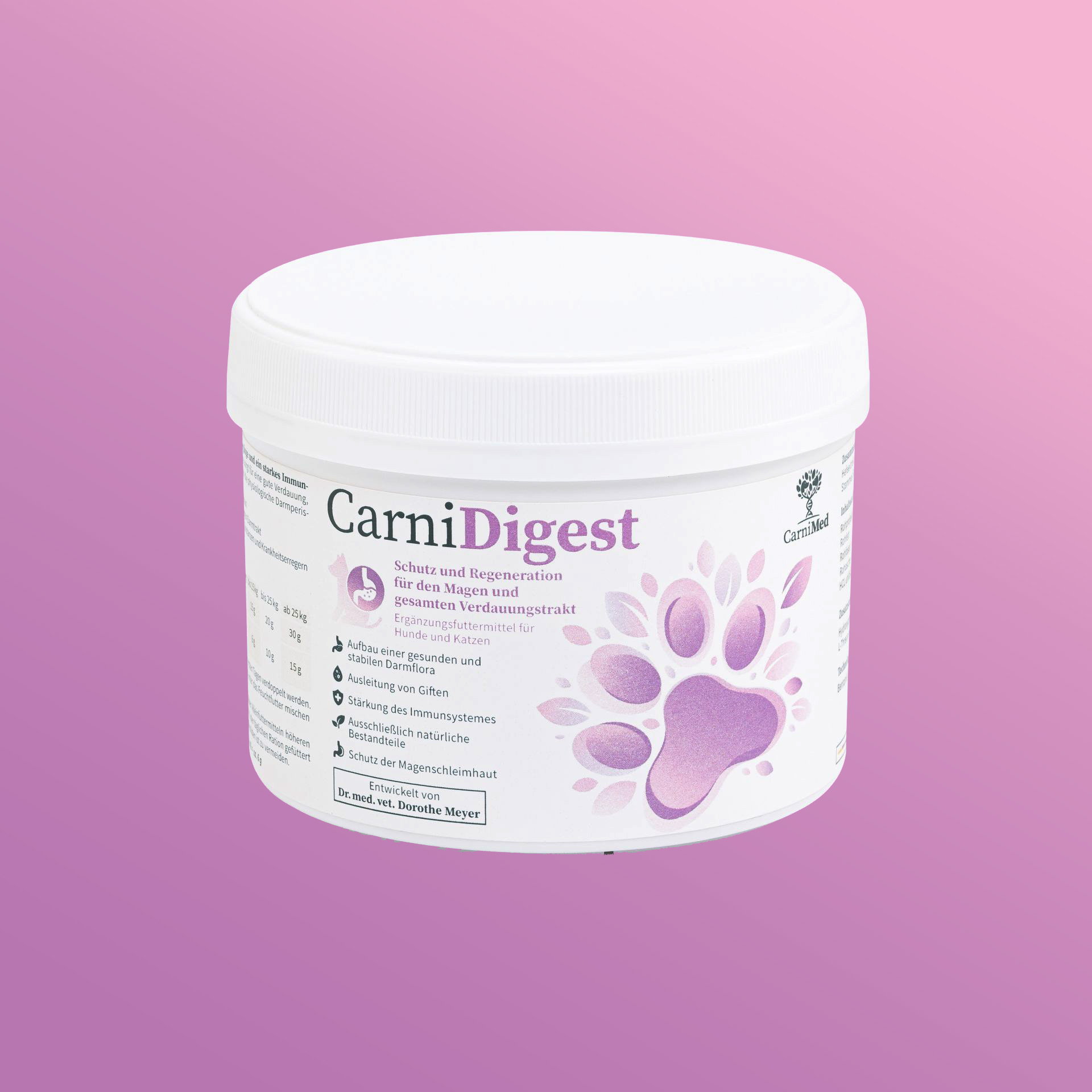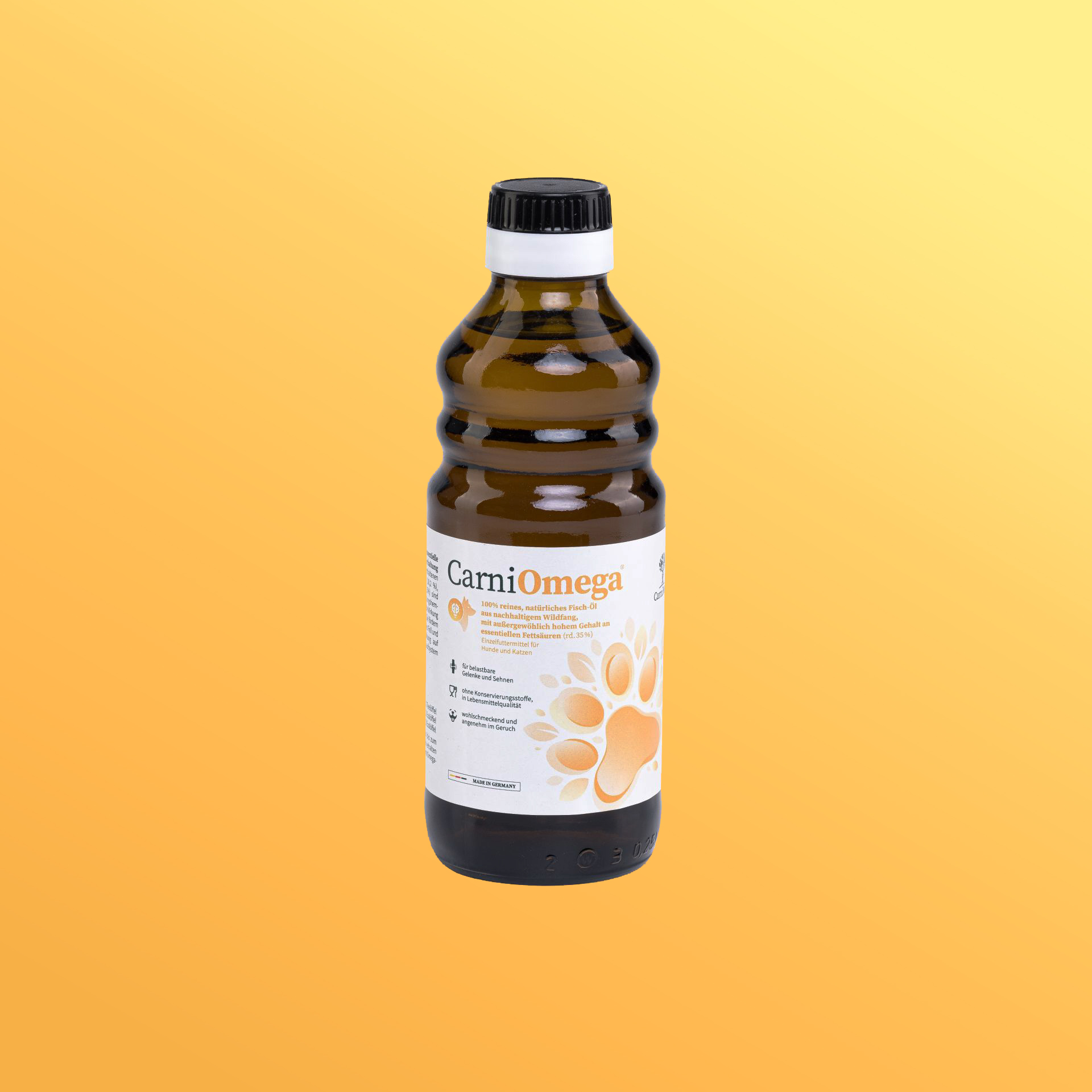
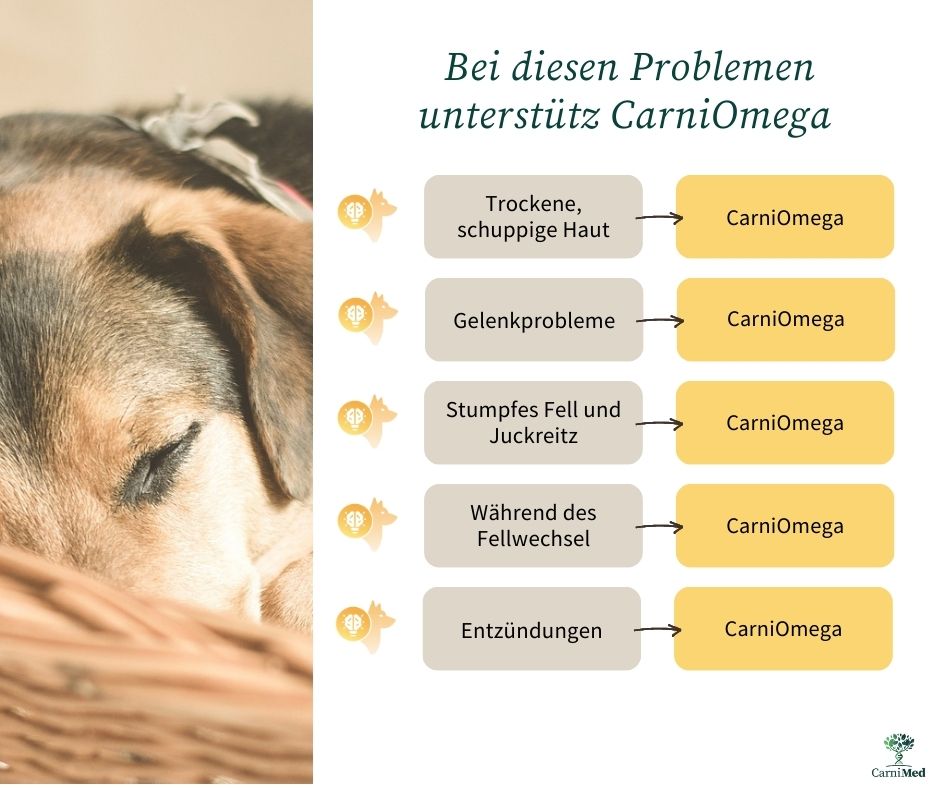
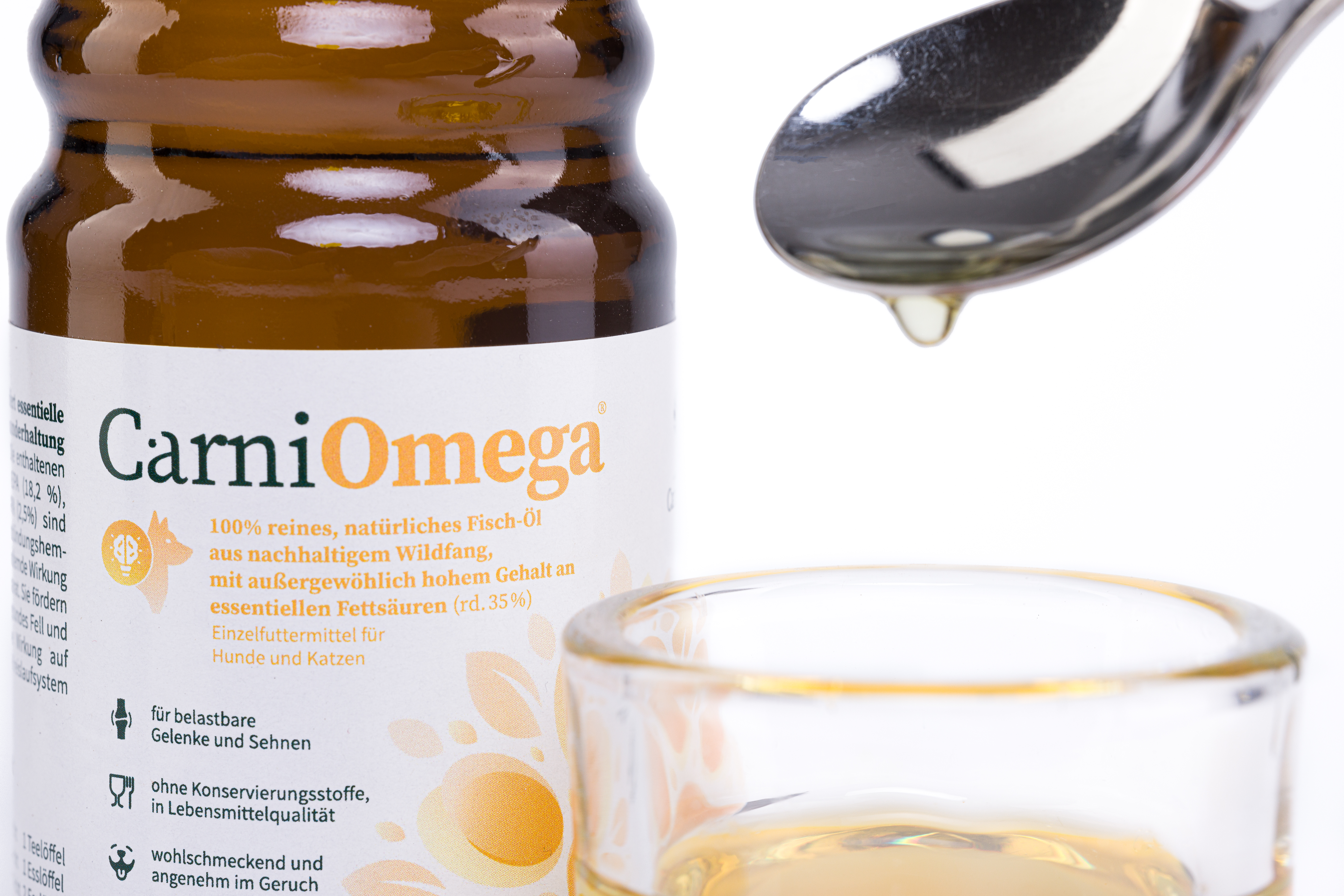
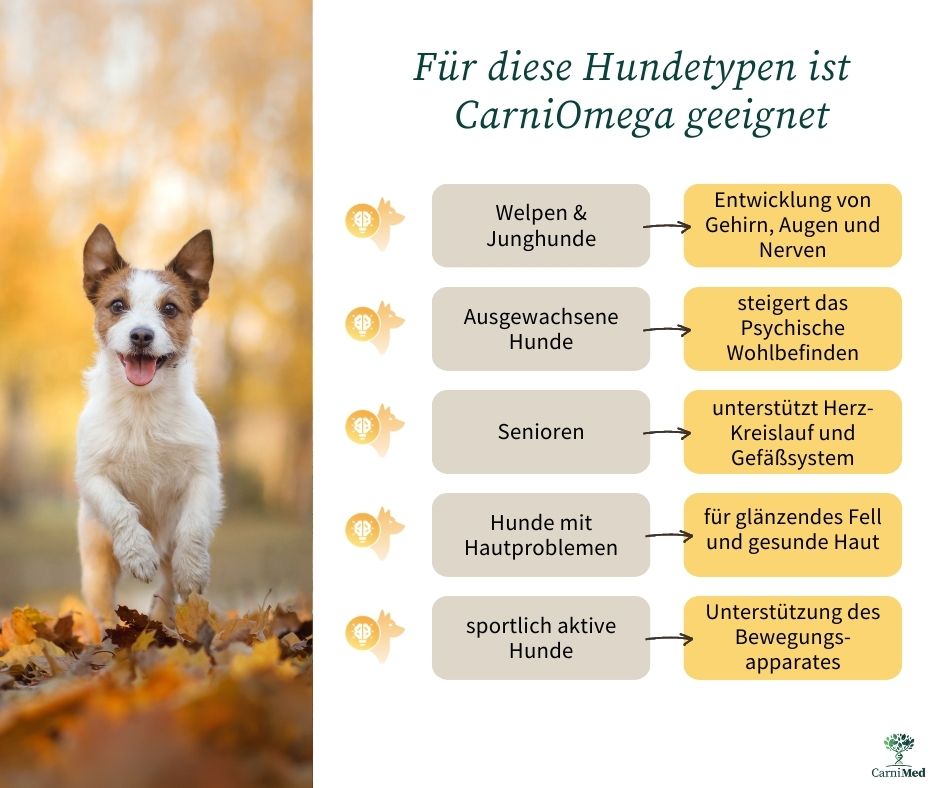
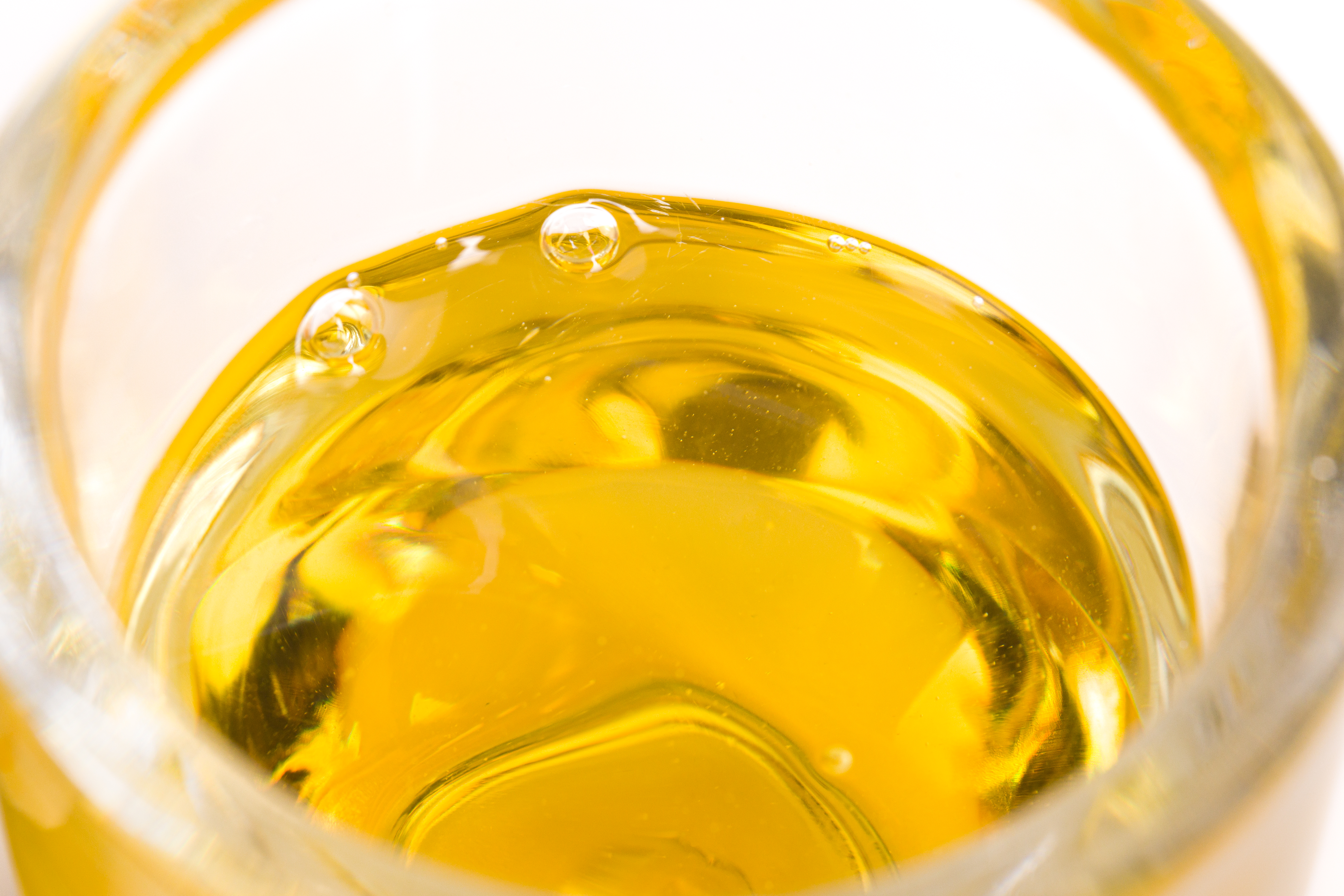
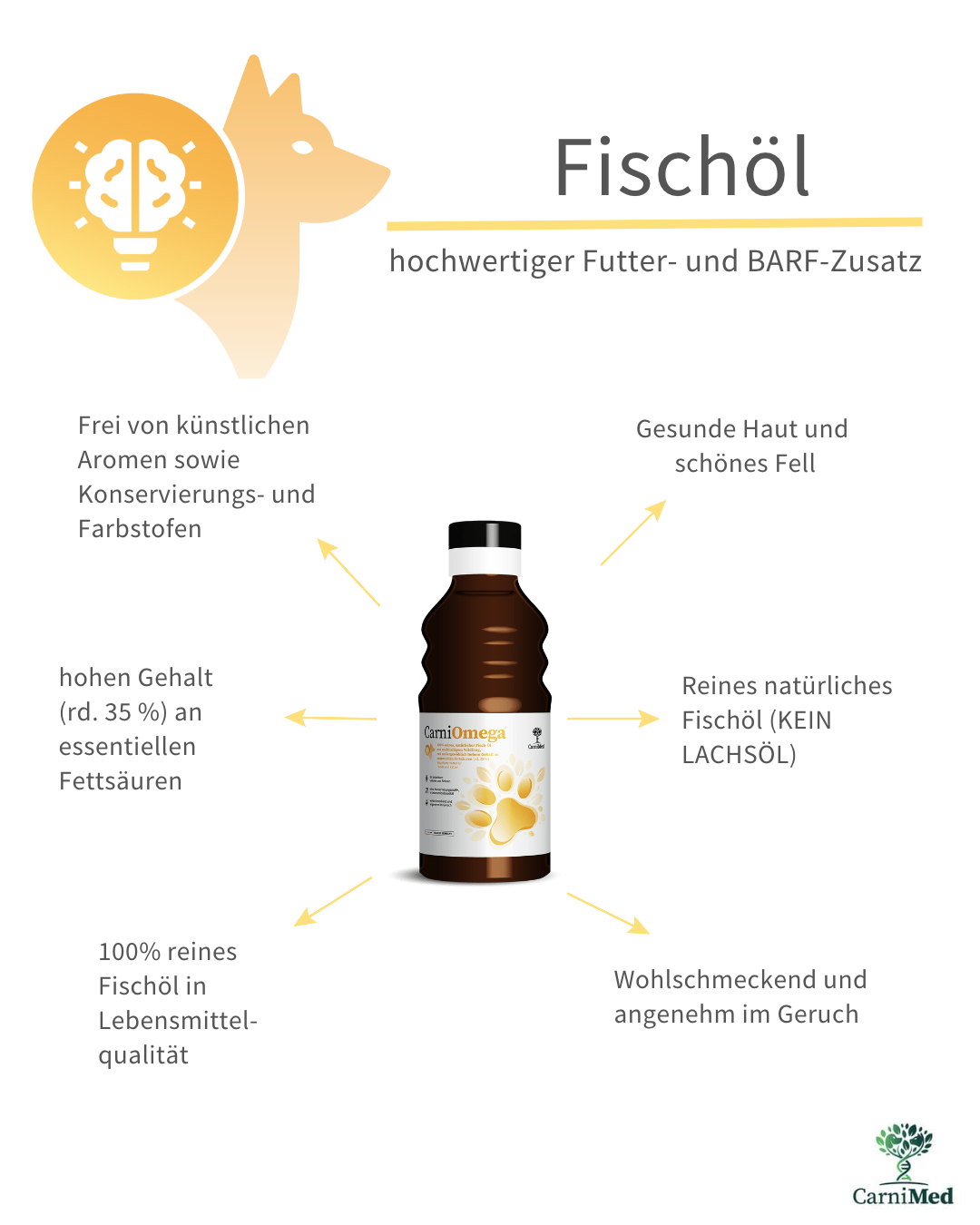
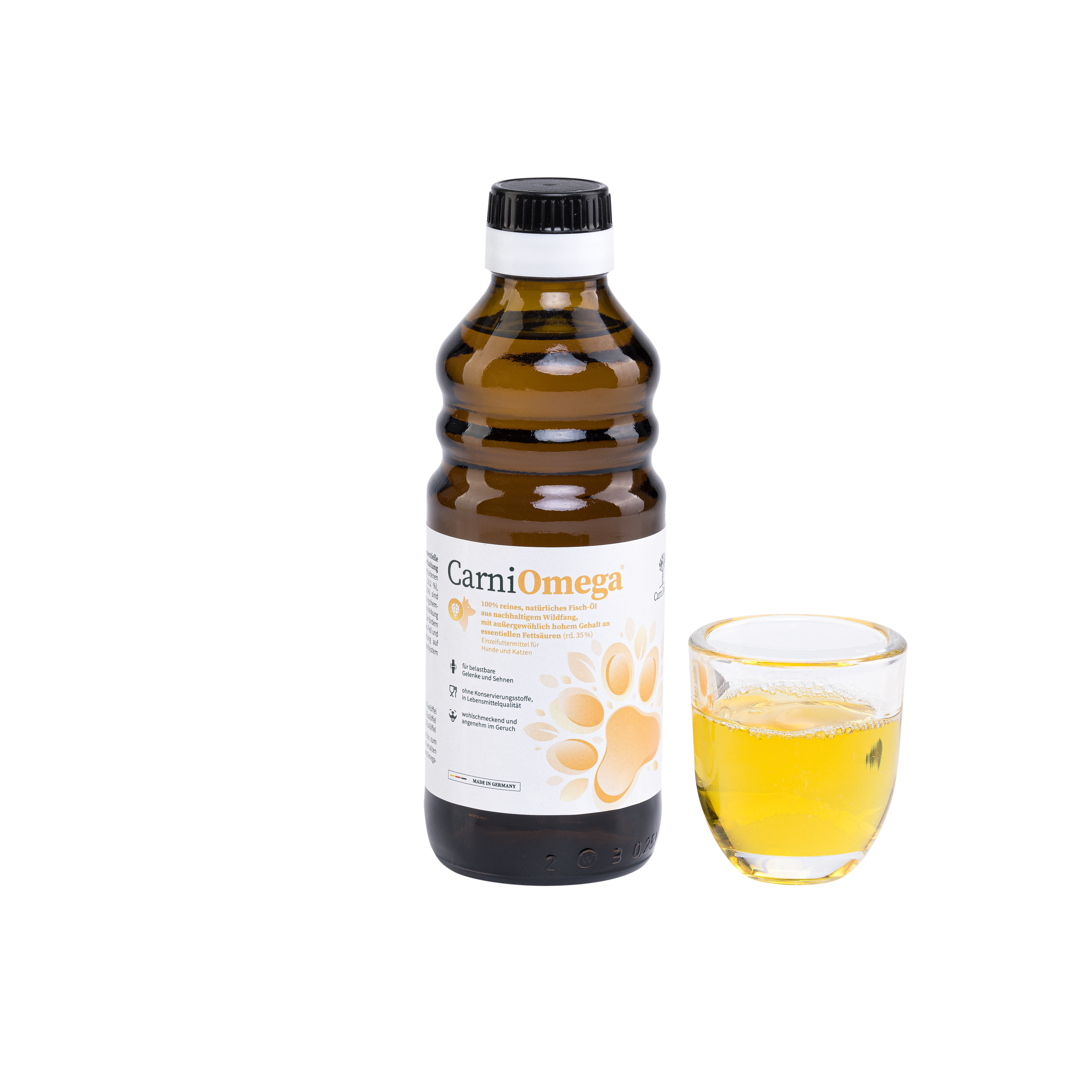
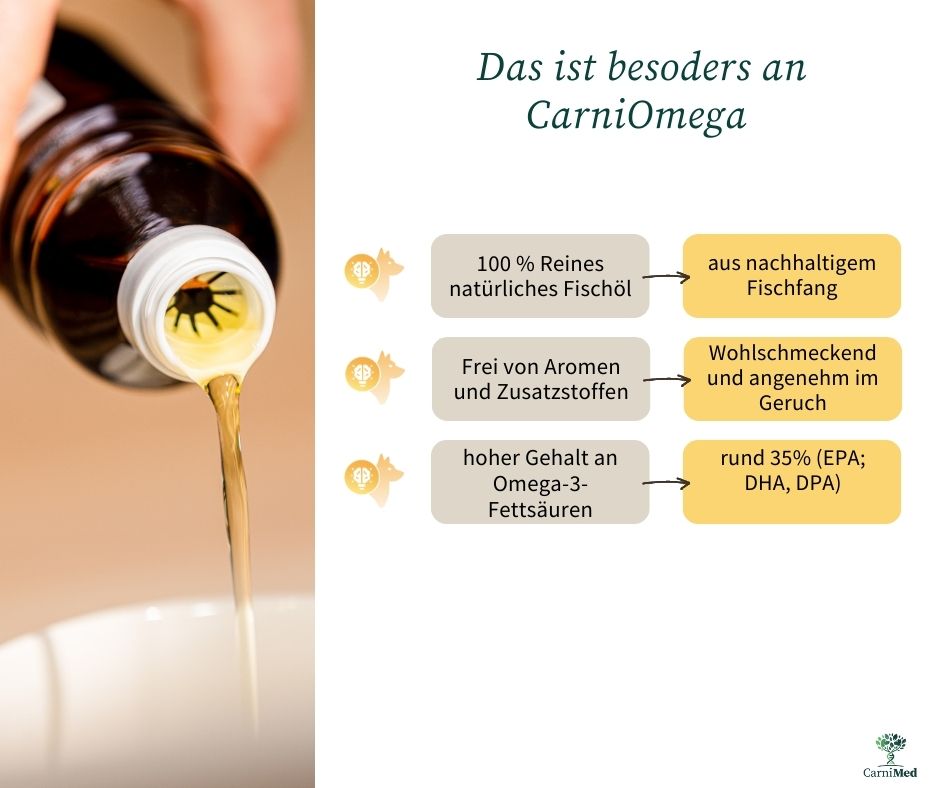
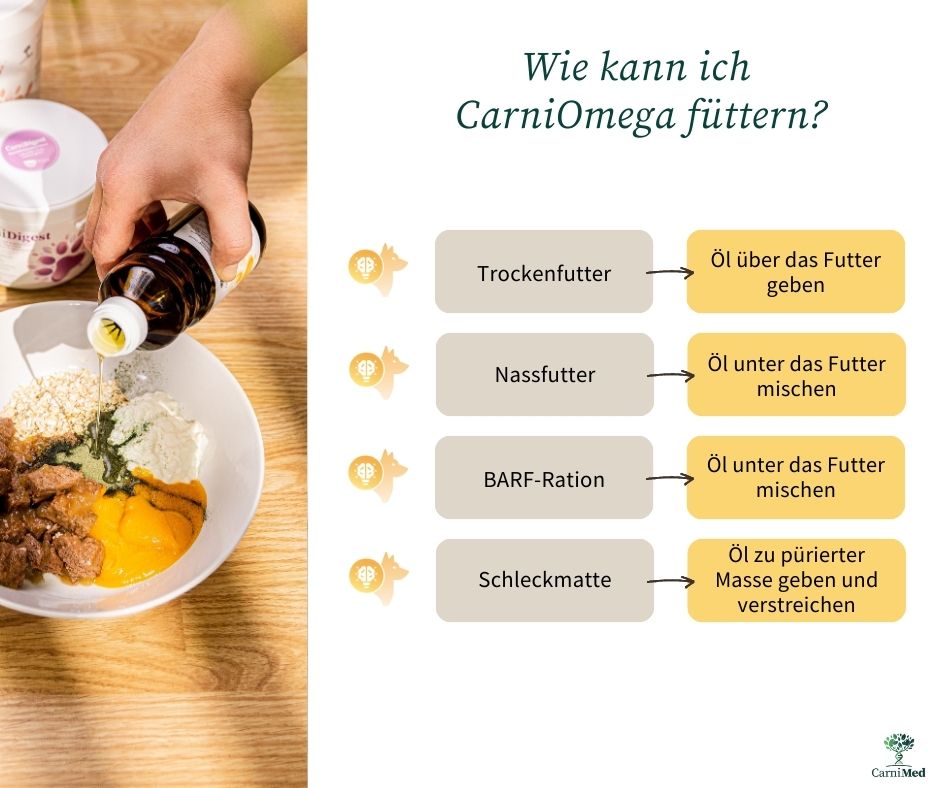
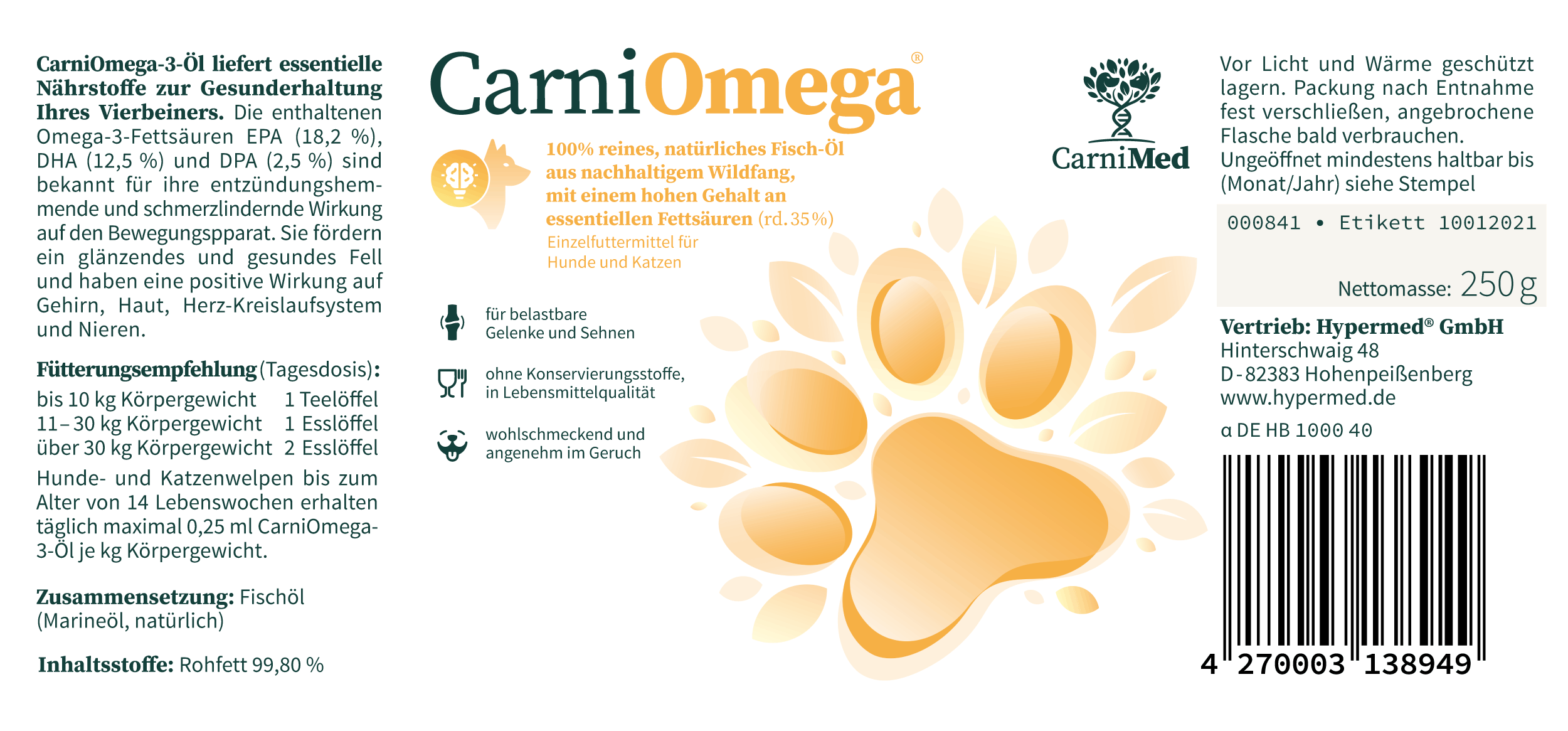






























CarniOmega Fischöl
- 100% reines natürliches Fischöl (KEIN Lachsöl)
- Gewonnen aus nachhaltigen Fischfang
- Besonders hohe Gehalte an EPA, DHA und DPA
This product offers other products in a discounted bundle! Benefit from the curated combinations and discounts!
- Frei von künstlichen Aromen, Farb- und Konservierungsstoffen
- wohlschmeckend und angenehm im Geruch
- hoher Gehalt (rd. 35%) an Omega-3-Fettsäuren

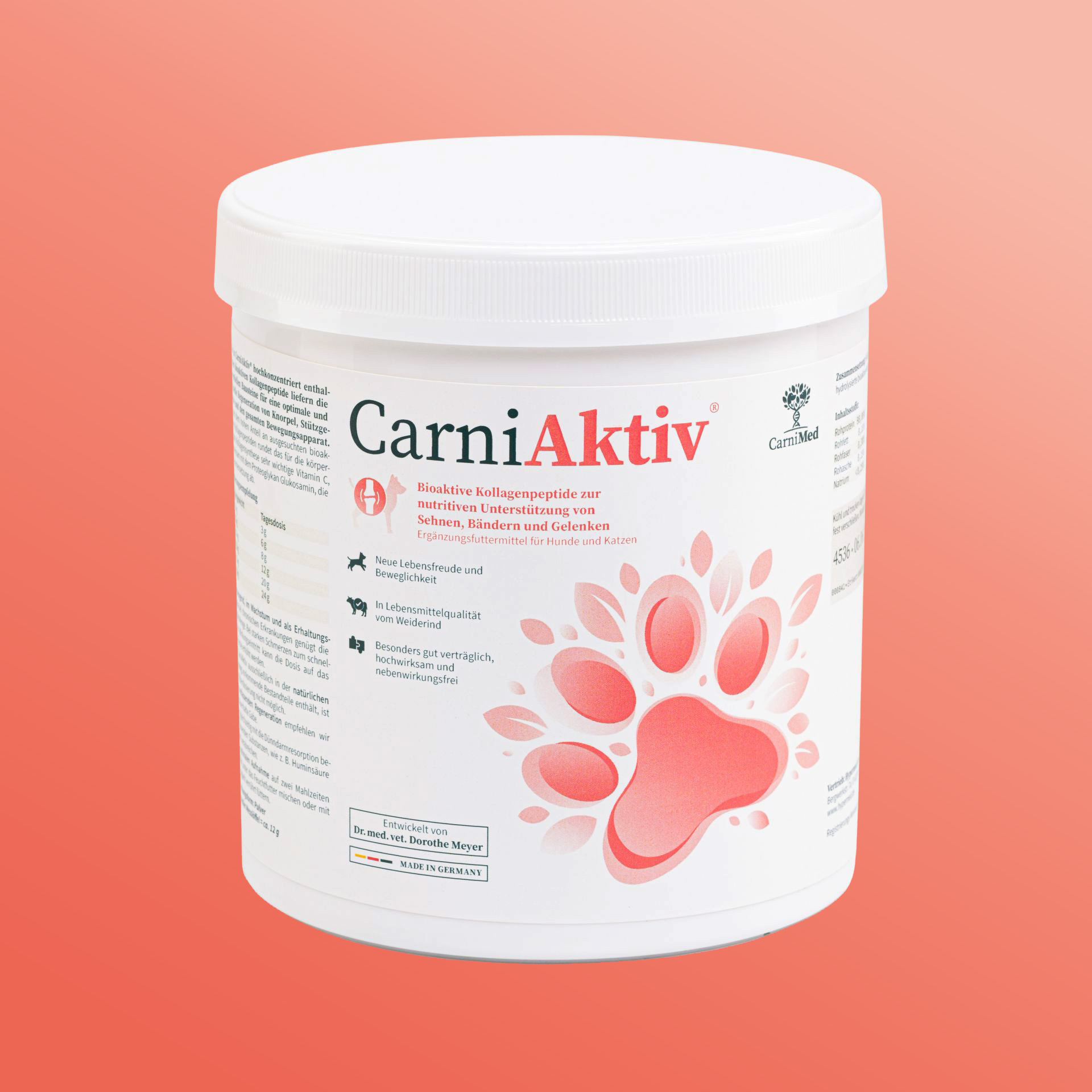

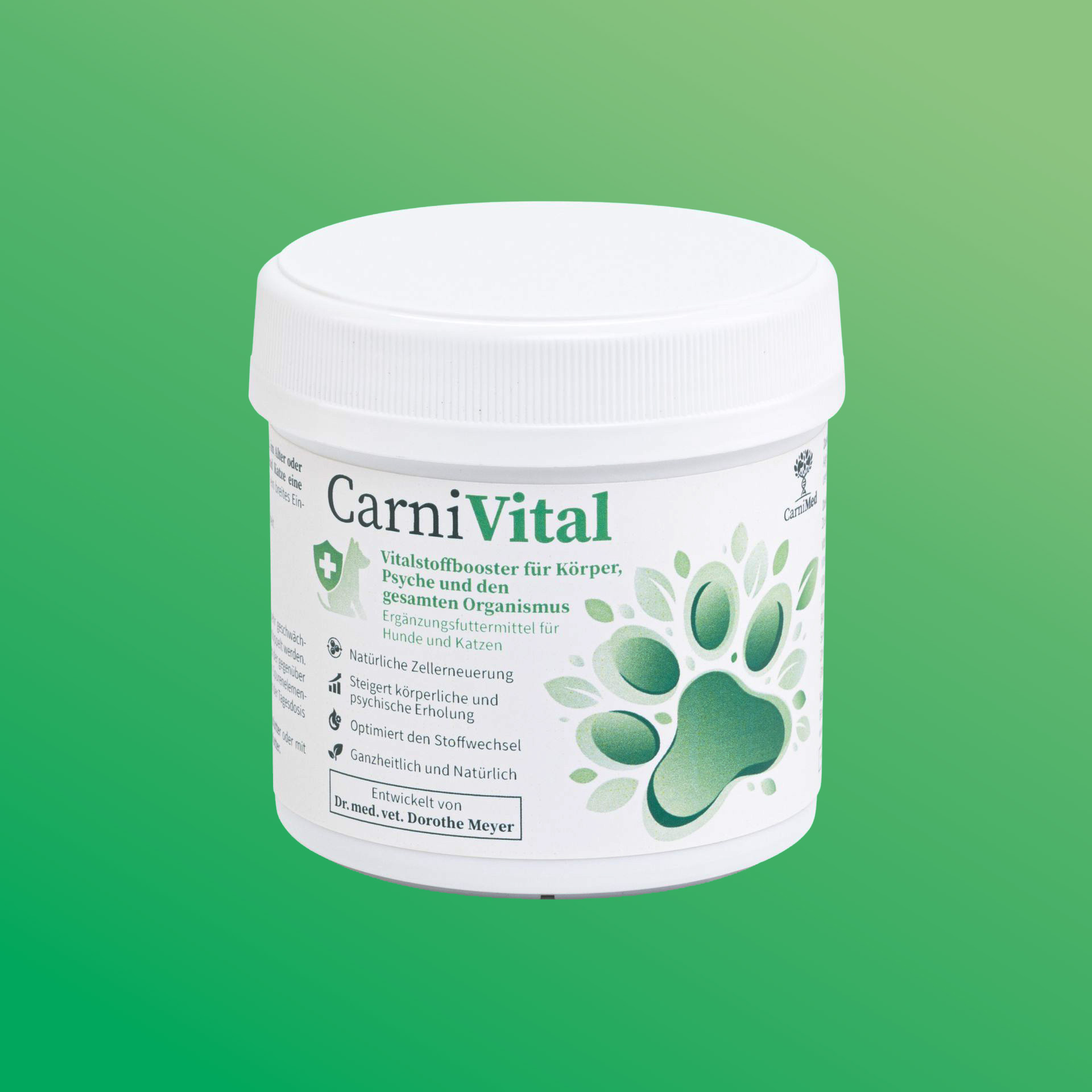

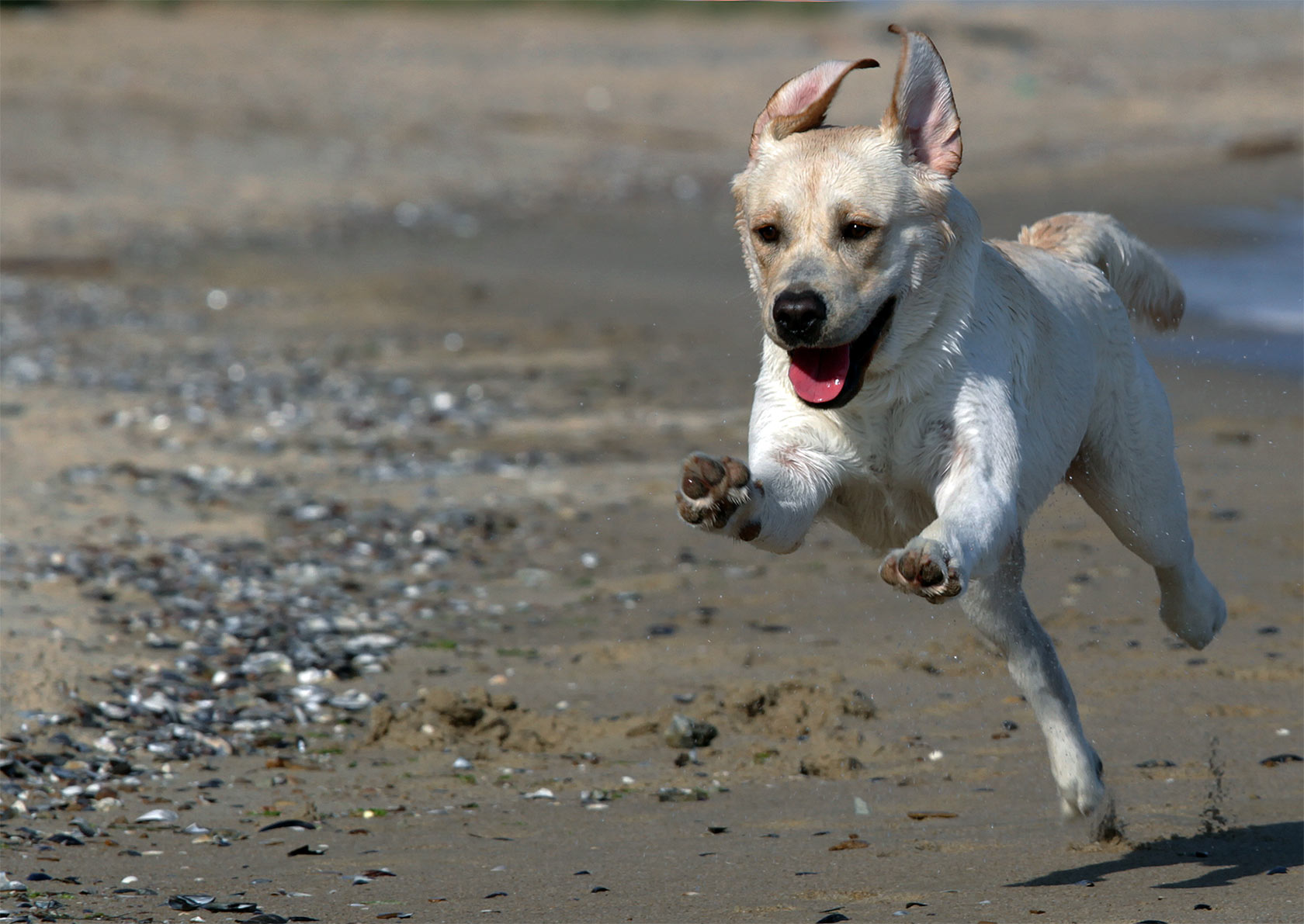
Vital nutrients for the brain, nervous system and cardiovascular system
CarniOmega
- Without preservatives, in food quality
- Healthy skin and shiny coat
- 100% pure natural fish oil
- Tasty and pleasant smelling
Natural active ingredients from the best source for your dog
Pure natural fish oil as a high-quality feed and barf supplement for your dog. With an exceptionally high content (approx. 35 %) of essential fatty acids.
Dry / flaky skin, dull coat, constant scratching, problems with the musculoskeletal system or joints. Here, the right supply of omega-3 and omega-6 fatty acids is essential. Unfortunately, your dog (and your cat, too) cannot produce these vital fatty acids themselves, so they have to be fed in.
The omega-3 fatty acids epa (18.2%), dha (12.5%) and dpa (2.5) are known for:
- An anti-inflammatory and analgesic effect.
- They therefore support the effect of CarniAktiv®
- A shiny coat and healthy skin
- A positive effect on the brain, cardiovascular system and kidneys
Our oil comes from small wild cold-water fish of northern europe in particularly high purity and quality. The oil is absolutely natural, from sustainable fishing, without any added preservatives or other additives. Food quality is a matter of course for us.
Weitere Produkte
Content: 100 Gramm (€219.50* / 1000 Gramm)
Content: 650 Gramm (€76.77* / 1000 Gramm)
Content: 250 Gramm (€134.40* / 1000 Gramm)
Content: 650 Gramm (€87.06* / 1000 Gramm)




